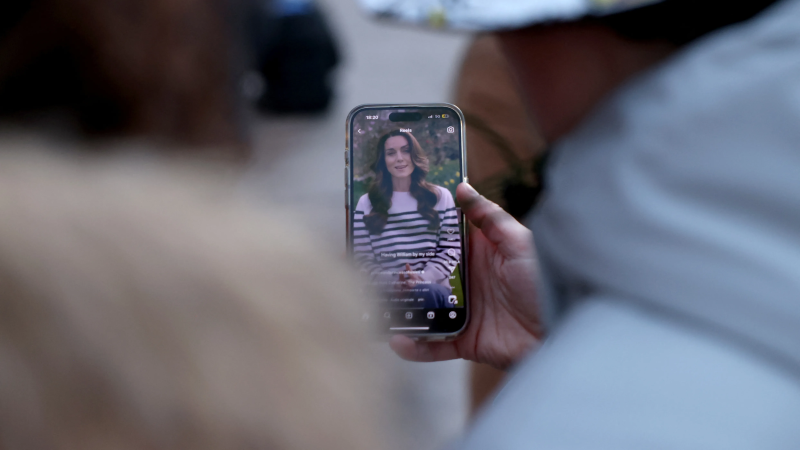Chemotherapy: A quick explainer in light of Princess Kate's cancer diagnosis
The news of Princess Kate's cancer diagnosis sent shock waves across the globe Friday.
In a video released by Kensington Palace, the Princess of Wales, who's married to Prince William and is the mother of three young children, said she was undergoing preventative chemotherapy treatment. She did not reveal what type of cancer she has, nor what type of chemotherapy she is receiving.
But chemotherapy has many types and functions and varying effects on the body. Here's what we know:
The news:Princess Kate has cancer, palace says; King Charles III reacts: Live updates

What is chemotherapy?
In general, chemotherapy is "a drug treatment that uses powerful chemicals to kill fast-growing cells in your body," according to the Mayo Clinic.
There are many types of chemotherapy, and they can be used in combination with other treatments, or alone, to treat a variety of types of cancer.
"Though chemotherapy is an effective way to treat many types of cancer, chemotherapy treatment also carries a risk of side effects," Mayo notes. "Some chemotherapy side effects are mild and treatable, while others can cause serious complications."
Why chemotherapy?
Chemotherapy kills cancer cells. But its purposes can vary, the Mayo Clinic says.
- It can be used to cure cancer as the primary or sole treatment for the disease.
- Chemotherapy can also be used after other treatments, like radiation or surgery, as "adjuvant therapy" to kill hidden cancer cells that might remain in the body. Kate Middleton underwent abdominal surgery in January and at the time, the palace said her condition was non-cancerous. However, on Friday the princess said in a video statement that while "the surgery was successful... tests after the operation found cancer had been present."
- Chemotherapy can also be used to prepare the body for other treatments; for example, as "neoadjuvant therapy" to shrink a tumor ahead of surgery or radiation treatment.
- It may also be used to ease some cancer symptoms, as "palliative therapy" to bring relief to patients by killing some cancer cells, the Mayo Clinic says.
- It's also used to treat non-cancerous conditions as well: Chemotherapy can be used in preparation for a bone marrow transplant and, in lower doses, to treat some autoimmune diseases including lupus and rheumatoid arthritis.

What are chemotherapy's side effects?
Side effects can vary, depending on the type of chemotherapy used. Some are temporary and relatively mild; others can be serious and life-altering. Common side effects, according to the Mayo Clinic, include:
- Nausea
- Vomiting
- Diarrhea
- Hair loss
- Loss of appetite
- Fatigue
- Fever
- Mouth sores
- Pain
- Constipation
- Easy bruising
- Bleeding
Most of these side effects are temporary and subside once treatment is finished. However, chemotherapy can also have some long-lasting effects that are not always immediately evident, including damage to lung tissue; heart problems; infertility; kidney problems; nerve damage; and increased risk for other cancers.
Types of chemotherapy
The kind of chemotherapy affects how and where it needs to be administered – at home, in a hospital or other clinical setting – and depends on the type of cancer being treated and the severity of the disease.
Infusions are the most common form of chemotherapy; the drugs are administered intravenously into the arm or chest. Some chemo drugs can be taken in pill or capsule form, while others are shots.
Chemotherapy creams can be applied to the skin to treat some forms of skin cancer; other forms of chemo can be targeted to specific areas of the body, like the abdomen, chest or central nervous system.
And some chemotherapy is targeted right at the cancer cells, such as post-surgical chemo that might target an area around a tumor once it's been removed.
Disclaimer: The copyright of this article belongs to the original author. Reposting this article is solely for the purpose of information dissemination and does not constitute any investment advice. If there is any infringement, please contact us immediately. We will make corrections or deletions as necessary. Thank you.






